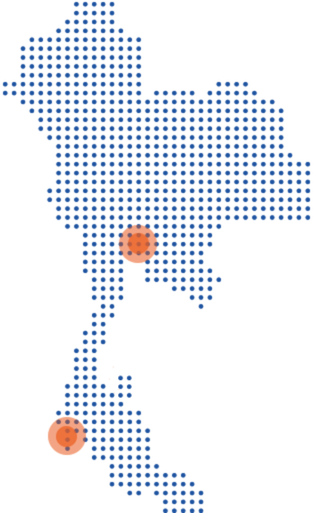

Thailand Tightens Regulations on Foreign Digital Asset Platforms
Thailand Enforces Stricter Oversight on Foreign Crypto Platforms to Protect Investors
The Securities and Exchange Commission (SEC) of Thailand has introduced stricter measures to regulate foreign digital asset platforms targeting Thai investors. This move follows the implementation of the Emergency Decree on Digital Asset Businesses (No. 2) B.E. 2568 (2025) (Digital Asset Business Law) and the Emergency Decree on Measures for the Prevention and Suppression of Cybercrimes (No. 2) B.E. 2568 (2025) (Cybercrime Law), both of which came into effect on 13 April 2025.
These new laws aim to streamline the process of blocking unlicensed foreign digital asset platforms and enhance protections for Thai investors. Under the amended Digital Asset Business Law, foreign operators engaging with investors in Thailand must secure the appropriate licenses, with specific criteria determining whether they are deemed to be operating within the country.
Criteria for Providing Services to Thai Investors
The SEC has outlined several factors that indicate whether a foreign digital asset business operator is considered to be offering services to persons in Thailand:
- Operating a digital platform displayed, in whole or in part, in the Thai language.
- Using a domain name with extensions like “.th” or “.ไทย,” or employing domain names in the Thai language.
- Accepting payments in Thai baht or through deposit accounts or electronic money accounts in Thailand.
- Specifying Thai law as the governing law for transactions or resolving disputes in Thai courts.
- Paying for search engine optimization or marketing to target Thai users.
- Establishing offices, entities, or hiring personnel to assist Thai users.
- Other activities as defined by SEC notifications.
Cybercrime Law Strengthens Enforcement
The Cybercrime Law grants the Ministry of Digital Economy and Society (DE) authority to block access to unlicensed foreign digital asset platforms. Additionally, digital asset business operators are required to implement robust anti-cybercrime measures, including the suspension of accounts involved in cybercrime, similar to the current practices adopted by commercial banks. Additionally, they have to implement refund mechanisms to ensure swift compensation for victims of cybercrimes and are required to blacklist individuals or wallet addresses linked to cybercrime activities.
The rationale behind these new measures is to allow for more efficient and timely blocking of unlicensed platforms. Individuals who open or permit others to use their digital asset accounts as mule accounts for criminal purposes could face significant penalties, including imprisonment of up to three years, fines of up to 300,000 baht, or both. The SEC urges investors to use services provided by licensed digital asset business operators to ensure legal protection under the Digital Asset Business Law. These developments underscore Thailand’s commitment to fostering a secure and regulated digital asset market, ensuring investor confidence while maintaining compliance with international standards.
How We Can Help
With Thailand intensifying its regulatory oversight of digital asset platforms, it is crucial for both foreign operators and investors to stay informed and compliant. The evolving legal landscape demands careful attention to licensing obligations, cybersecurity protocols, and the growing intersection of digital asset regulation and criminal enforcement.
At FRANK Legal & Tax, we advise foreign digital asset service providers, fintech investors, and blockchain-related businesses on navigating Thailand’s complex legal framework. Our team provides strategic counsel on SEC licensing, compliance with the Digital Asset Business Law, and risk mitigation under the Cybercrime Law.
Contact us to learn how we can support your compliance efforts, protect your digital operations, and ensure regulatory alignment in Thailand’s digital asset ecosystem.
Andreas Seela
Andreas primarily focuses on corporate/commercial, tax law, and real estate law. He previously worked for an international law firm in Germany and has experience in the Asian legal sphere. He holds a Master’s degree in business law and economics (LLM.oec.) and is currently working on his Ph.D. thesis at Chulalongkorn University in international law.

